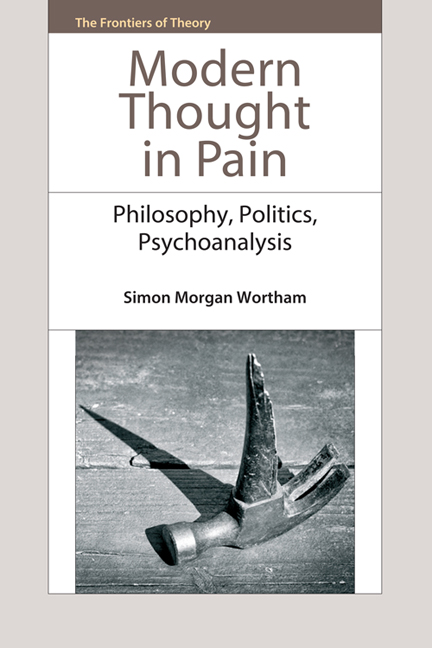6 - Grief-substitutes, or, Why Melanie Klein Is So Funny
Published online by Cambridge University Press: 05 September 2016
Summary
‘Ideas come to us as the substitutes for grief’ (Proust)
For Melanie Klein, there is no psychic condition that can be characterised in terms of an objectless state, or in other words there is no psychic experience without an object. As Julia Kristeva – one of Klein's most critically astute readers – puts it, for her ‘object-relations are at the centre of emotional life’. However, this very same relationality gives rise to ‘object’ anxiety from the outset. Such anxiety, focused on the mother's breast as exemplary, takes particular forms: fear of persecution, the projection of destructive impulses, a desire to raid what is ‘good’ and violently exteriorise what is ‘bad’ about the now-split object (wherein such violent intention may manifest itself, nevertheless, in terms of the wish to consume the ‘other’), and so on. Thus, the Kleinian breast is constituted, in Kristeva's terms, as an ‘amalgam of representations … a diverse array of internal objects’ (pp. 63–4), the ambivalence of which is reflected in the instability of psychic identity as it develops. To raid the ‘good’ contents of the other, as the obverse of sadistic wishes, is of course also a form of self-harm. If psychic life is intrinsically object-related, then to split the other – albeit in the interests of defending the ego against its ‘object’ – is also to split the self. Thus, as Kristeva observes, the ‘good’ breast as much as the ‘bad’ is ‘laden with traps’ (p. 67). These specific effects of ‘object anxiety’ are exemplified by what Klein terms the paranoid-schizoid position, found typically in infants of under six months old. Here, the psychic condition of the child is in constant danger of disintegration – or, rather, it is defined or ‘positioned’ by such disintegration itself, the ego taking its self-protective form only in terms of fragmenting projections (for instance, through projecting onto a particular outside, splitting off a ‘bad’ part of oneself that the other also is, or, alternatively, feeling devalued or lessened in the ideal presence of the ‘good’ object with which one wishes, however impossibly, to identify, and thereby losing primacy as such).
- Type
- Chapter
- Information
- Modern Thought in PainPhilosophy, Politics, Psychoanalysis, pp. 140 - 150Publisher: Edinburgh University PressPrint publication year: 2014

